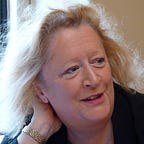Climate Activists Acquitted in Lawsuit over Damage to Shell’s London Headquarters
Six members of the group Extinction Rebellion were cleared of all charges by a jury. Here’s what they said and why it matters.
The six people up in court for the last week, on trial for criminal damage to the London headquarters of Shell, have been found not guilty. This was not foreseen; indeed the Judge Gregory Perrins said that even if their actions were “morally justified”, that did not provide a lawful excuse.. The defendants defended themselves. There was no doubt that damage had been done. There was no doubt about who had done it. The defendants never denied their action. What they did was explain what they believed they had done.
First to testify was Senan Clifford. He hadn’t see himself doing harm, but trying to prevent it. “I was concerned about doing damage because my life is about making things and repairing things….So its quite a big step to say I’m in on this.”
“The estimate is half the population of our planet is all that will be able to survive So what do we do? Feeling totally desperate I decided the thing to do was to become a conscientious objector, a protector of the earth.” Who are the criminals, he went on to ask. Those who despoil it or those who try to preserve it?
Explaining to the jury how he felt on the days of protest, David Lambert said, “What you saw in the video is a man so far out of his comfort zone he was almost inarticulate….” But he felt he had to do something, that the time for petitions was over. “We do not have time to effect change throughout the usual process. We must step out of our comfort zones individually and collectively to effect social political and economic change.” The way that he “wanted to prevent death”, he said, “was by raising awareness about Shell.”
Filmed hammering a plate glass window, Jane Augsburger explained “I want to make cracks in a window and I want it to sound like a big event is happening…I wanted the cracks to open this trapped, bound-up situation we are in, where our government is stuck and big oil are holding onto all the power.” She argued “Shell is the biggest petroleum company in England, they’ve lied to us, they’ve pretended to make things better….How could anybody continue to act, knowing. The damage we did to them, is nothing to them, its like a tiny little scratch. It was honestly the most honest thing I’ve ever done.”
Simon Bramwell saw himself as defending nature itself. “Conscience dictates good law. Our planet, Nature, has insufficient rights. If we are going to survive the next 20, 30, 40, 50 years, we have to change things around. The river Thames has no rights — 94,000 plastic particles floating down it — yet Shell has rights.”
Sid Saunders argued that “the state is simply not protecting us enough…the laws are not protecting us enough.” He wanted, he said, to be able to look his children in the eyes and tell them he had tried his very best. “As a father I am genuinely concerned about the world my children will grow up in. If we acted like it was an emergency…then we could save a lot of places…and millions of people who live in coastal communities.”
Day after day, in calm, rational voices, the defendants simply explained themselves.
In his Reith lectures, former Supreme Court judge Jonathan Sumption had had an intriguing exchange with a member of the audience who sought his advice on how to change the law against assisted suicide. He gave her what was perhaps an unexpected piece of advice.
“The law should be broken from time to time. We need to have a law against it to prevent abuse but it has always been the case that this has been criminal and that courageous people have helped people die. I don’t believe there is necessarily a moral obligation to obey the law. Ultimately it is something each person has to decide within his (own) conscience.”
This, he implied, is how the law changes.
In the context of this trial, the big ambition remains that the International Criminal Court make ecocide an international crime. That campaign was the life’s work of British lawyer, Polly Higgins, who died of cancer during the protest. But the cfight continues. The pope denounced “the massive contamination of air, land and water,” as ecocide and has proposed that “any action capable of producing an ecological disaster,” be deemed a sin for Roman Catholics. French President Macron has hinted at his support. In the UK, the Climate Change Act of 2019 has already committed the government by law to reducing greenhouse gas emissions by at least 100% of 1990 levels (net zero) by 2050. Why is it not against the law to prevent those who stand in the way of these goals? Slowly, the movement is acquiring powerful friends. Sometimes big famous names. And sometimes ordinary people: activists and juries.
